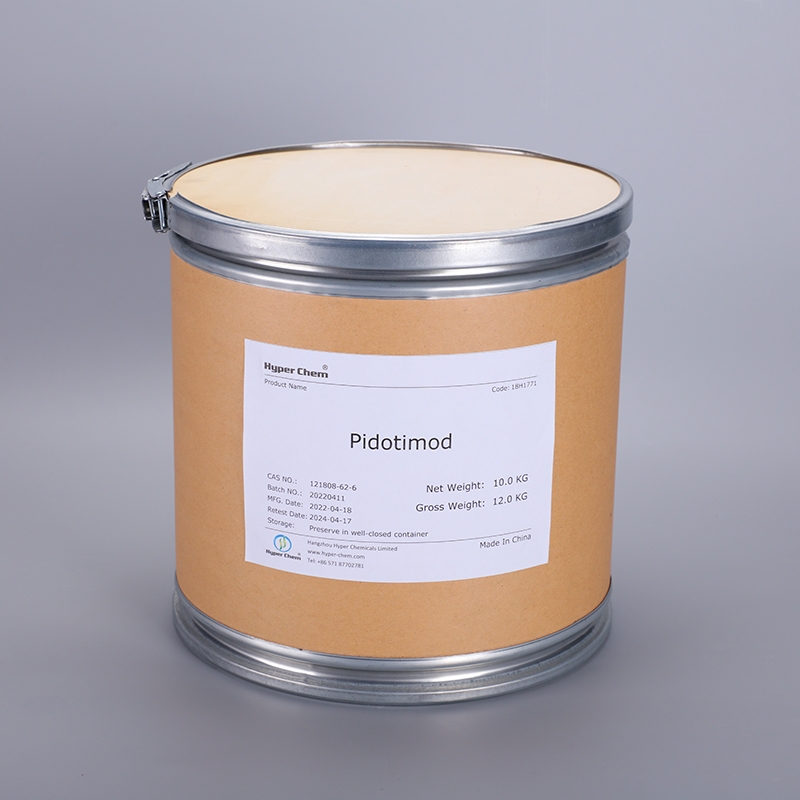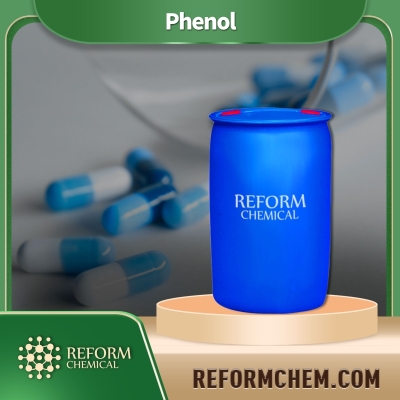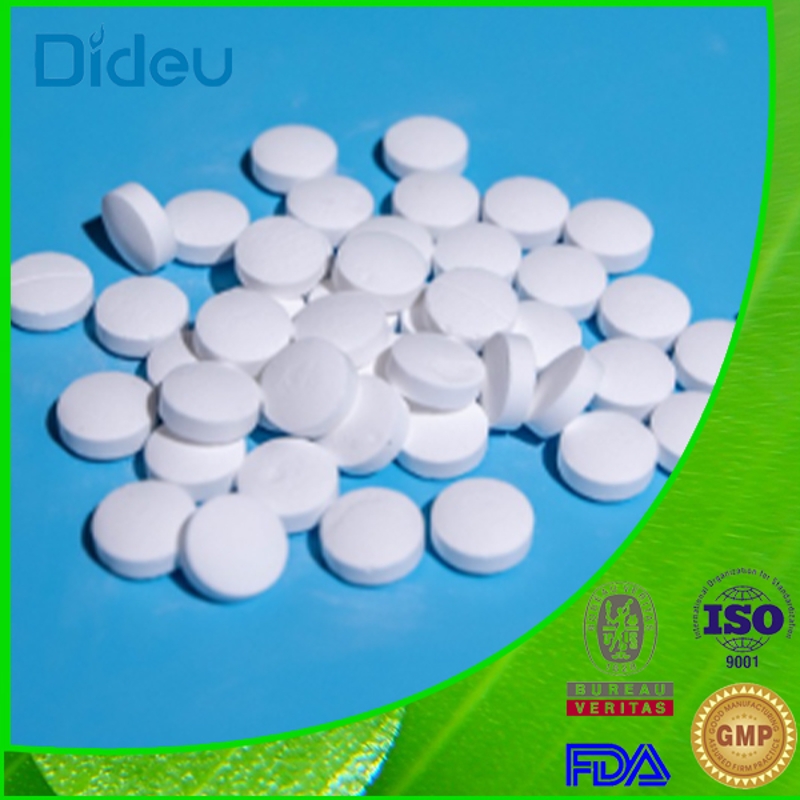-
Categories
-
Pharmaceutical Intermediates
-
Active Pharmaceutical Ingredients
-
Food Additives
- Industrial Coatings
- Agrochemicals
- Dyes and Pigments
- Surfactant
- Flavors and Fragrances
- Chemical Reagents
- Catalyst and Auxiliary
- Natural Products
- Inorganic Chemistry
-
Organic Chemistry
-
Biochemical Engineering
- Analytical Chemistry
-
Cosmetic Ingredient
- Water Treatment Chemical
-
Pharmaceutical Intermediates
Promotion
ECHEMI Mall
Wholesale
Weekly Price
Exhibition
News
-
Trade Service
Reactive oxygen species (ROS) in a biological context are natural byproducts of normal oxygen metabolism and play important roles
in cell signaling and homeostasis.
However, oxidative stress can occur when excess reactive oxygen species are produced in the body, which amplifies the inflammatory response and exacerbates inflammatory diseases
.
In inflammatory bowel disease (IBD), oxidative stress induced by excess reactive oxygen species in the gut is thought to be a major predisposing factor
.
Antioxidants are known to remove reactive oxygen species from the gut to help relieve IBD symptoms
.
However, due to factors such as the non-specific biodistribution of drugs after systemic administration and the relatively poor efficacy of scavenging reactive oxygen species, the therapeutic effect of antioxidants on IBD is not satisfactory.
It can also cause adverse reactions
in normal tissues.
On November 11, 2022, in a new study published in Science Advances, a research team from the University of Wisconsin-Madison developed polymer nanoparticles that effectively scavenged reactive oxygen species and combined them with modified E.
coli to safely and effectively target colonic tissue in mouse experiments and significantly alleviated IBD symptoms in animals
。 The study opens the door
to potential clinical applications.
In healthy individuals, the gut flora maintains ecological balance and protects the host from invasion and colonization
by pathogens.
In contrast, dysbiota disorders induce chronic inflammatory states, which in turn increase toxin production and disrupt host metabolism
.
In addition to excess reactive oxygen species in the gut, scientists have found that IBD is also associated
with dysbiosis of the intestinal flora in the colonic microenvironment.
In previous research, the team developed a technique to encase beneficial bacteria inside a very thin protective shell to help them build and multiply
in the mouse gut.
Unfortunately, however, these therapeutic bacteria are highly sensitive to the harsh environment in the gastrointestinal tract, thus limiting their activity in the intestine as well as the length of stay, resulting in unsatisfactory
therapeutic results.
In the new study, the team established a platform to selectively and sustainably remove reactive oxygen species
from inflammatory colon tissue.
They synthesized a hyaluronic acid (HA)–PPS conjugate and self-assembled HA-PPS nanoparticles
based on the amphiphilic presence when HA and PPS bind.
Hyaluronic acid is used to modify PPS and build nanoparticles because it can relieve IBD symptoms
by modulating the immune response.
In addition, hyaluronic acid, commonly found in synovial fluid and extracellular matrix, is biocompatible and biodegradable, and has been widely used
in biomedicine.
To improve efficient delivery of oral bacteria to the colon, the researchers wrapped the modified E.
coli Nissle 1917 (EcN) with norepinephrine (NE) to form a polyNE film by self-oxidizing on the surface to protect probiotics from attack
by the external environment.
In addition, the catecholamine group of NE is rich in strongly adherent mussel foot mucin, which gives engineering bacteria strong mucosal adhesion and can prolong their residence time in the intestine, thereby enhancing the therapeutic effect
.
Based on the colonizing properties of E.
coli tissue, the researchers further incorporated the nanoparticles to the surface of engineered bacteria, as if to give the bacteria a "backpack" (see figure below).
This backpack-carrying engineered E.
coli can be efficiently delivered to inflammatory colonic tissue and minimize off-target side effects
while normalizing reactive oxygen species levels.
Finally, tests conducted by the researchers in mice showed that engineered E.
coli, wrapped in a protective shell and equipped with a nanoparticle "backpack," was significantly better
at alleviating inflammatory bowel disease symptoms than its un"armed" counterparts.
Partially treated mice had minimal
weight loss and colon shortening compared to mice that received partial or no treatment.
Together, the platform not only extends the residence time of orally engineered beneficial bacteria in the gut to enhance bacterial therapeutic effects, but also specifically delivers and slows the release of nanoparticles within the intestine, thereby improving the clearance capacity
of reactive oxygen species.
However, the team said that while the results are promising, human trials will be some time
away.
in cell signaling and homeostasis.
However, oxidative stress can occur when excess reactive oxygen species are produced in the body, which amplifies the inflammatory response and exacerbates inflammatory diseases
.
In inflammatory bowel disease (IBD), oxidative stress induced by excess reactive oxygen species in the gut is thought to be a major predisposing factor
.
Antioxidants are known to remove reactive oxygen species from the gut to help relieve IBD symptoms
.
However, due to factors such as the non-specific biodistribution of drugs after systemic administration and the relatively poor efficacy of scavenging reactive oxygen species, the therapeutic effect of antioxidants on IBD is not satisfactory.
It can also cause adverse reactions
in normal tissues.
On November 11, 2022, in a new study published in Science Advances, a research team from the University of Wisconsin-Madison developed polymer nanoparticles that effectively scavenged reactive oxygen species and combined them with modified E.
coli to safely and effectively target colonic tissue in mouse experiments and significantly alleviated IBD symptoms in animals
。 The study opens the door
to potential clinical applications.
In healthy individuals, the gut flora maintains ecological balance and protects the host from invasion and colonization
by pathogens.
In contrast, dysbiota disorders induce chronic inflammatory states, which in turn increase toxin production and disrupt host metabolism
.
In addition to excess reactive oxygen species in the gut, scientists have found that IBD is also associated
with dysbiosis of the intestinal flora in the colonic microenvironment.
In previous research, the team developed a technique to encase beneficial bacteria inside a very thin protective shell to help them build and multiply
in the mouse gut.
Unfortunately, however, these therapeutic bacteria are highly sensitive to the harsh environment in the gastrointestinal tract, thus limiting their activity in the intestine as well as the length of stay, resulting in unsatisfactory
therapeutic results.
In the new study, the team established a platform to selectively and sustainably remove reactive oxygen species
from inflammatory colon tissue.
They synthesized a hyaluronic acid (HA)–PPS conjugate and self-assembled HA-PPS nanoparticles
based on the amphiphilic presence when HA and PPS bind.
Hyaluronic acid is used to modify PPS and build nanoparticles because it can relieve IBD symptoms
by modulating the immune response.
In addition, hyaluronic acid, commonly found in synovial fluid and extracellular matrix, is biocompatible and biodegradable, and has been widely used
in biomedicine.
To improve efficient delivery of oral bacteria to the colon, the researchers wrapped the modified E.
coli Nissle 1917 (EcN) with norepinephrine (NE) to form a polyNE film by self-oxidizing on the surface to protect probiotics from attack
by the external environment.
In addition, the catecholamine group of NE is rich in strongly adherent mussel foot mucin, which gives engineering bacteria strong mucosal adhesion and can prolong their residence time in the intestine, thereby enhancing the therapeutic effect
.
Based on the colonizing properties of E.
coli tissue, the researchers further incorporated the nanoparticles to the surface of engineered bacteria, as if to give the bacteria a "backpack" (see figure below).
This backpack-carrying engineered E.
coli can be efficiently delivered to inflammatory colonic tissue and minimize off-target side effects
while normalizing reactive oxygen species levels.
Finally, tests conducted by the researchers in mice showed that engineered E.
coli, wrapped in a protective shell and equipped with a nanoparticle "backpack," was significantly better
at alleviating inflammatory bowel disease symptoms than its un"armed" counterparts.
Partially treated mice had minimal
weight loss and colon shortening compared to mice that received partial or no treatment.
Together, the platform not only extends the residence time of orally engineered beneficial bacteria in the gut to enhance bacterial therapeutic effects, but also specifically delivers and slows the release of nanoparticles within the intestine, thereby improving the clearance capacity
of reactive oxygen species.
However, the team said that while the results are promising, human trials will be some time
away.
Paper Link:
https://dx.
doi.
org/10.
1126/sciadv.
abp8798







